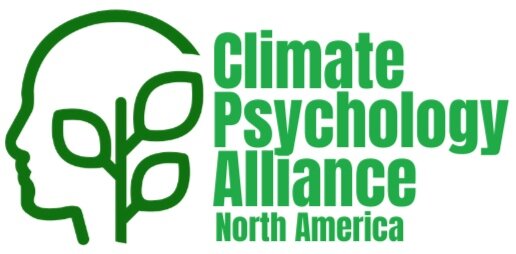As climate disasters escalate and dovetail with political polarization, we are witnessing the far right engage in systematic disinformation and misinformation strategies that divert attention away from climate solutions and instead play on and magnify societal insecurities, fear and vulnerabilities.
In this panel, we will learn more about the misinformation strategy, how journalists and legal workers are trying to address it and the clinical implications that become relevant as we provide care in disaster-impacted communities and in the wider field of climate distress.
Meet the Presenters
Amy Westervelt is an award-winning investigative print and audio journalist. In 2015, she received a Rachel Carson award for women greening journalism for co-founding a women-only climate journalism group syndicating longform climate reporting to The Atlantic, The Guardian, The Economist, and many more outlets. In 2017, she founded the independent podcast production company Critical Frequency, which specializes in reported narrative podcasts that The New Yorker, The New York Times, and The Atlantic have described as "fascinating," "rigorously reported," and "the best." Westervelt has received an ONA award for excellence in audio storytelling, multiple Covering Climate Now awards for climate reporting, a Wilbur award for excellence in religion reporting, two Peabody nominations, and was named a 2023 Covering Climate Now "Journalist of the Year." A 20-year veteran investigative journalist, Westervelt's earlier work for NPR, The Guardian, The Wall Street Journal, Inside Climate News, and various other outlets earned her Edward R. Murrow, ONA, and Folio awards as well, and is often cited as amongst the earliest examples of accountability reporting on climate. Her book "Brought to You By: Inside the Information War," is forthcoming from Bloomsbury.
Yessenia Funes is an independent journalist who has covered environmental issues and the climate crisis for over 10 years. She publishes a creative climate justice newsletter called Possibilities and is presently editor-at-large for Atmos, a climate and culture magazine. She's been published in The Guardian, Yale Climate Connections, The Verge, Vogue, and more.
Rebecca Weston (info to come)
Plus an additional speaker from Emergency Legal Responders.
Ticketholders who attend this event LIVE may be eligible for CEs.
CPA-NA is approved by the American Psychological Association to sponsor continuing education for psychologists. CPA-NA maintains responsibility for this program and its content.
To sign up for CEs, please purchase a ticket and purchase an add-on CE. You must attend this event live to receive credit. We'll send a quiz shortly after the event and you must earn 70% or more to pass. Those who pass will receive a CE certificate within two weeks of the event.
CPA-NA has requested presenter(s) to disclose any potential conflicts of interest or commercial support for the program. The presenter(s)for this event have reported none. CE credits are awarded based on full attendance at this presentation, >70% passing grade on the post test, and completion of a satisfaction survey. These materials are maintained for our annual APA CE report. We ask participants to specify their accessibility/accommodations needs on our registration form at least one week in advance of this training.
Check with your licensing board about APA CE acceptance.
Learning Objectives:
1. Attendees will be able to recognize what constitutes misinformation and disinformation as it relates to climate disaster public discourse.
2. Attendees will be able to locate relevant and applicable reputable sources of information as it relates to climate disasters.
3. Attendees will be able to identify relevant legal remedies where it may impact their community or clients as it relates to climate disasters.
4. Attendees will be identify at least two ways in which misinformation and disinformation connects with and manipulates experienced insecurity and climate anxiety in themselves, their community and the country.
5. Attendees will gain insight into ways they may compassionately connect with those in their clients or community who have absorbed mis/disinformation in a way that neither placates nor judges.
6. Attendees will develop confidence that building trust in relationship at both individual, group and community level is the initial first step in combatting mis/disinformation.
References:
1. The Drilled Guide to Global Climate Disnformation
2. Yale Program on Climate Change Communication, Understanding & Countering Climate Change Misinformation and Disinformation
3. Aftab, Awais, Machinery of Misbelief: A Psychiatrist’s Guide to the Post-Truth Condition (review of book)
4. Ophir, Yotam: Misinformation and Society and reviewed here: New Book Explores Misinformation’s History, Psychology, Social Impact and Potential Solutions
REGISTER HERE
Note: We acknowledge that Paypal is not a perfect payment system. If you wish to use an alternative payment method to purchase tickets please email [email protected].

